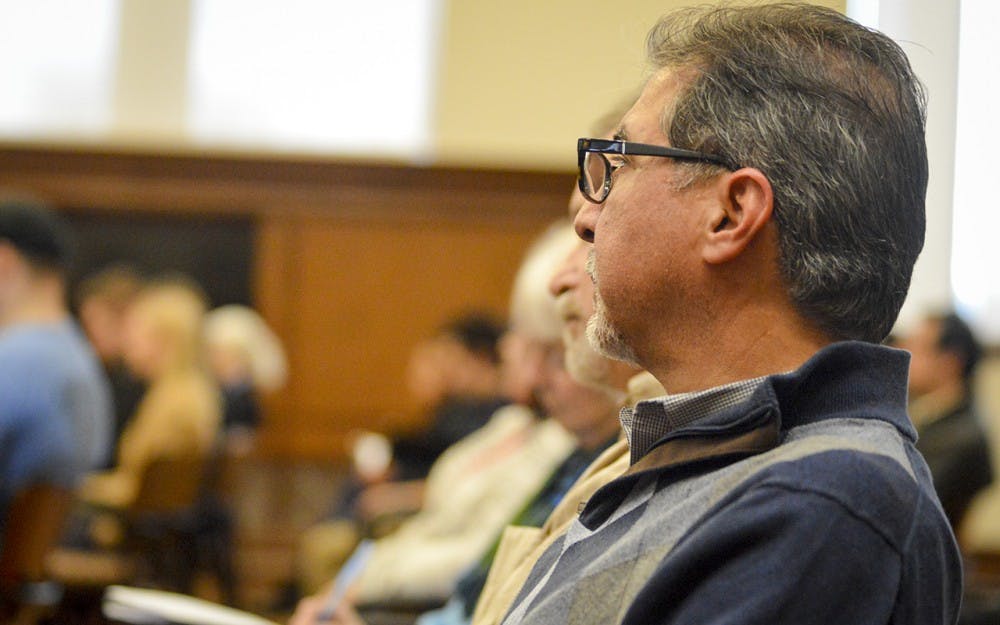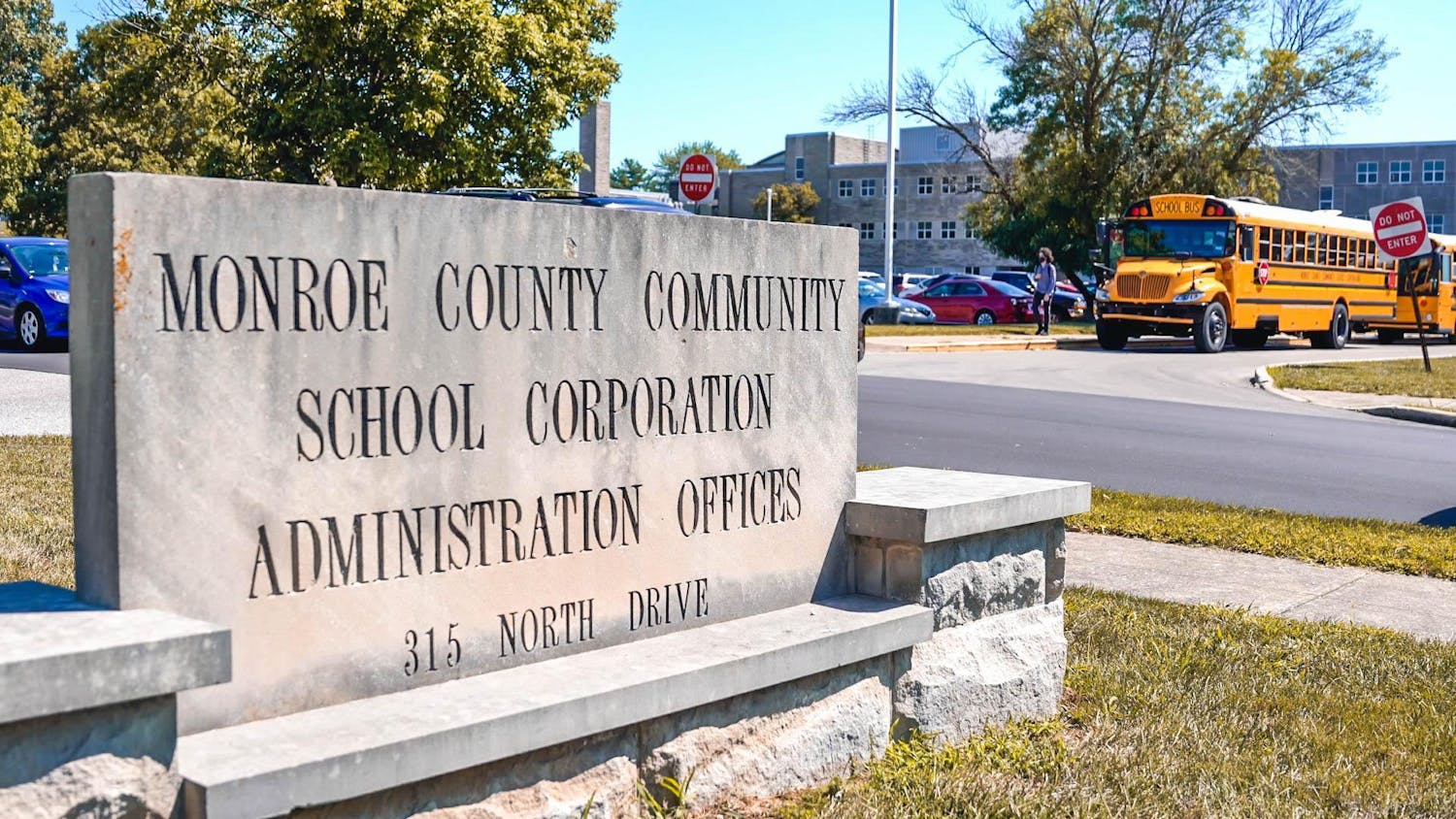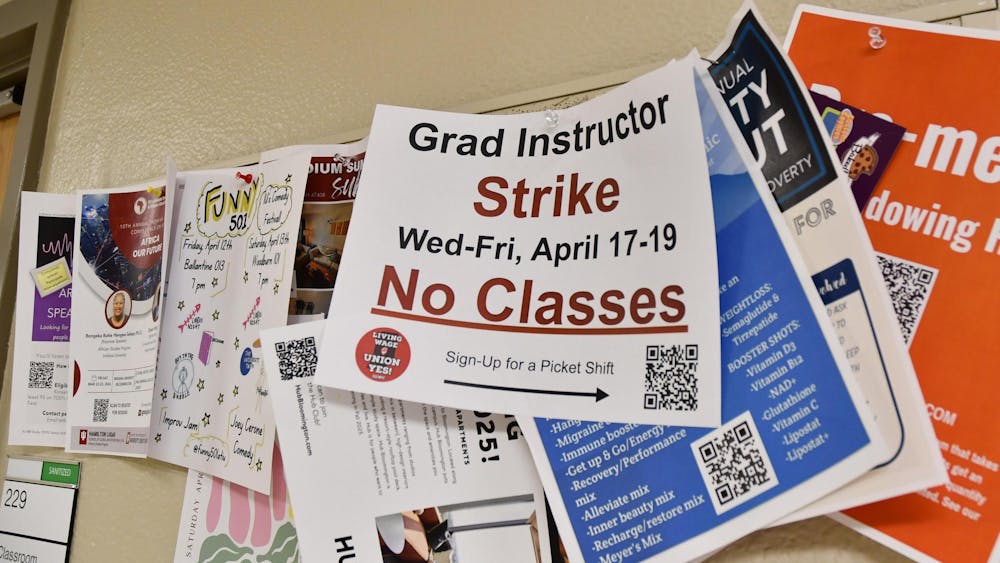Administrators, faculty and students joined Mayor John Hamilton and others in a forum Thursday afternoon to discuss anxieties regarding the political and legal climate in the country, specifically following the now-enjoined executive order signed last month regarding immigration.
Speakers included Provost Lauren Robel, professor Dawn Johnsen , IU Student Association President Sara Zaheer and various faculty members and student group leaders. After the first seven speakers at “Our Community in Today’s Political Context: Facts, Fears, and Responses,” the microphone was opened to those in attendance, many of whom took the opportunity to express their frustrations, concerns and plans in response to the federal government’s immigration actions.
Many speakers discussed their fear of Immigration & Customs Enforcement conducting raids in Bloomington and questioned whether local law enforcement would participate or aid in executing warrants.
Hamilton, denouncing the federal government’s current immigration policies, explained how the court and jail system in Bloomington is run by the county, not city government. It is the job of the county, not the Bloomington Police Department, to detain people after they are arrested.
“We have no intention of becoming an arm of ICE,” Hamilton said.
The city’s practices do not currently violate any laws, he said. His priority is protecting every Bloomington resident.
Those residents include students who are part of an institution which Robel said is in a vulnerable state.
“We’re at a point where public universities in particular are facing higher levels of, I would say, vulnerability, to federal policy initiatives than I can remember in my 21 years as a faculty member on this campus,” Robel said.
She repeated remarks she made in the past weeks expressing the negative implications of the executive order, particularly to faculty research, current and potential students whose studies were interrupted by the travel ban. Robel also expressed uncertainty for future legislation, especially in regard to students covered by the Obama administration’s policy on Deferred Action for Childhood Arrivals, or DACA.
The memos ordering DACA’s enforcement are still in place, she said, but this does not mean they will remain in place, regardless of what the president has said. She gave the example of rollback on federal protections for transgender students which were signed Wednesday, calling the level of activity on the federal level unprecedented.
Robel admitted the University will inevitably make decisions in the future which many in the community will not agree with, but asked for patience, especially in the face of uncertainty.
“Please don’t think we don’t care,” Robel said.
The discussion mainly focused on legal ramifications for undocumented immigrants, and all speakers expressed support for their undocumented peers and colleagues. Johnsen spoke first, followed by Hamilton and Robel. Johnsen served as Acting Assistant Attorney General and in the Department of Justice’s Office of Legal Counsel under former President Bill Clinton.
Courts normally take the side of United States presidents who make executive orders regarding national security, but they also understand the extraordinary circumstances of the current administration, she said. Like Trump, cities in Indiana face difficulty from other governmental agencies.
“The problem for us here in Indiana is the state government controls that,” Johnsen said, and referenced Indiana Senate Bill 423, a law which passed through committee Tuesday and would ban universities from declaring sanctuary campus status.
Johnsen said while federal courts can be a good check on executive overreach and wrongdoings of an administration, the real power lies in regular citizens who elect legislators.
Professor Alex Lichtenstein, who said he testified on behalf of the sanctuary campus bill before the Indiana Senate on Wednesday, said there were two important issues to face: the executive order and the overzealous enforcement of immigration laws.
S.B. 423 is a vague and strange bill because it prohibits “formal” and “informal” policies which would go against federal efforts, Lichtenstein said. He told the legislators this when he testified, which he said made them angry.
Lichtenstein said he did not think it was realistic for IU to take a position which would violate federal law. Still, he expects ICE to engage in local efforts soon.
”It’s going to happen,” he said. “I think we need to confront that as a possibility.”
Ground rules for response to any federal request should be established, and there can be difference between complying with federal law and collaborating with it, he said.
Lichtenstein said he wondered whether IUPD would detain students when asked to do so or whether they would tell ICE to execute its own warrant. If the federal government tried to challenge an IU position as “unofficial policy,” he said he expected the University to respond accordingly.
“I hope the University will say what the president said: ‘See you in court,’” Lichtenstein said.






